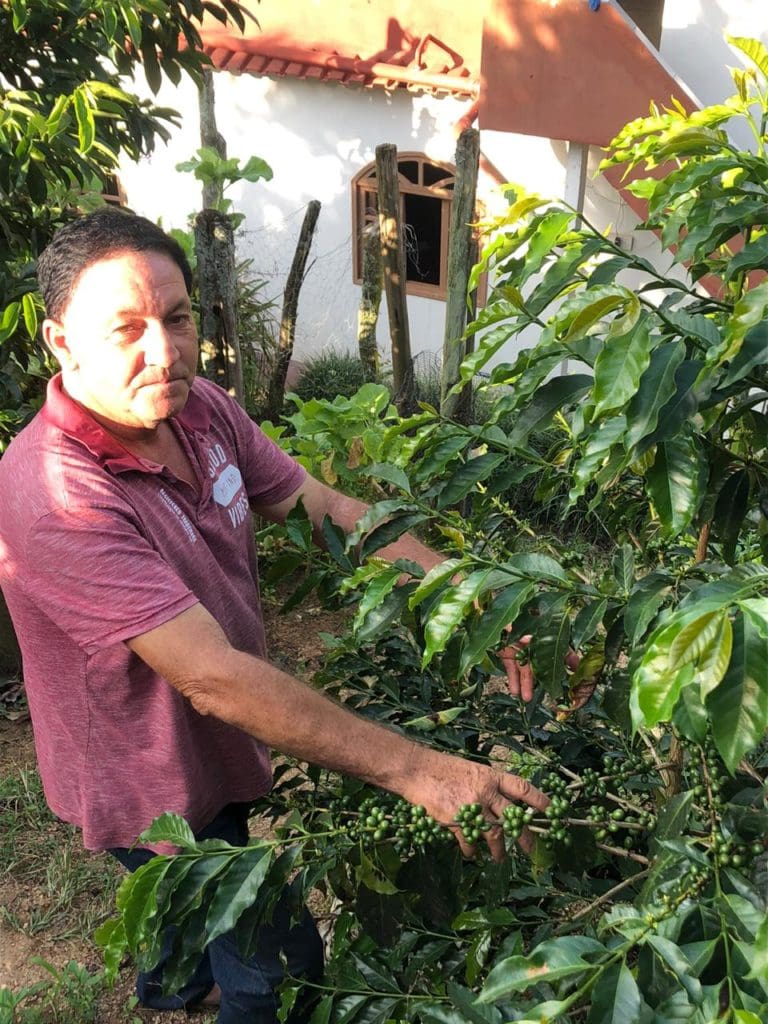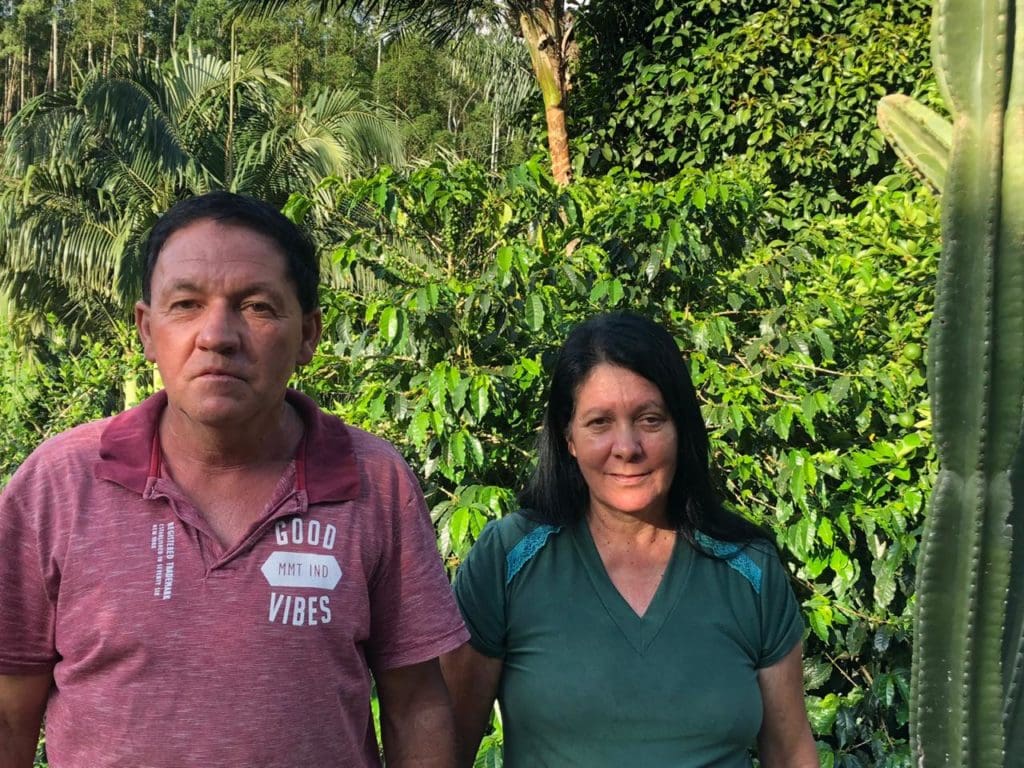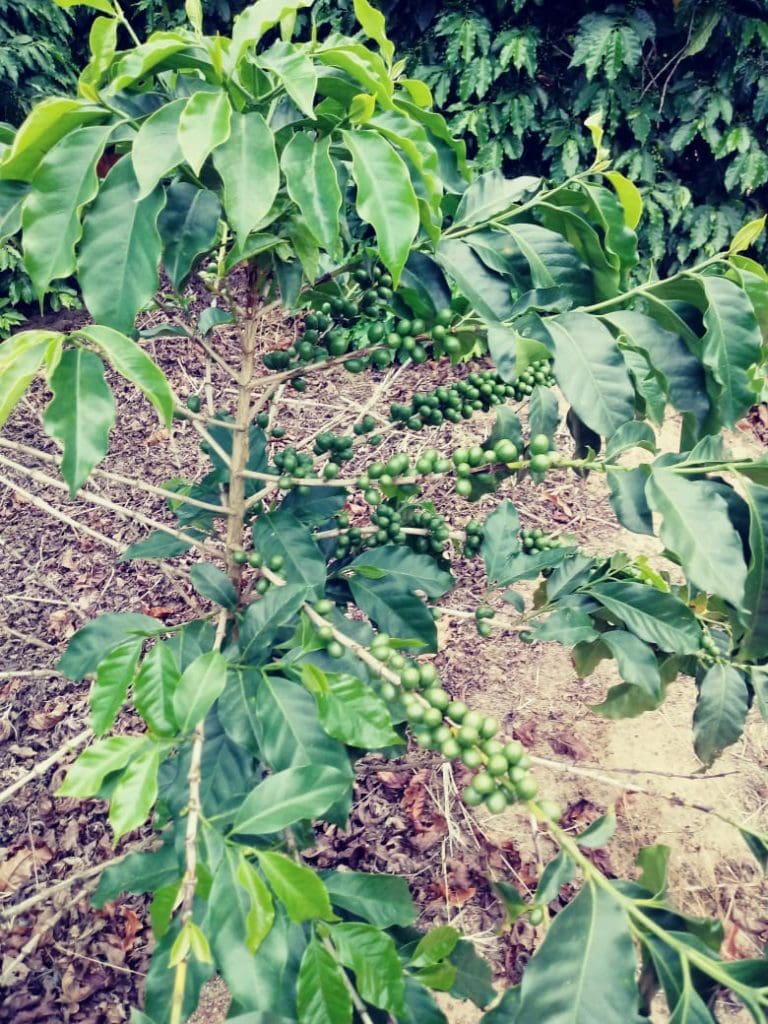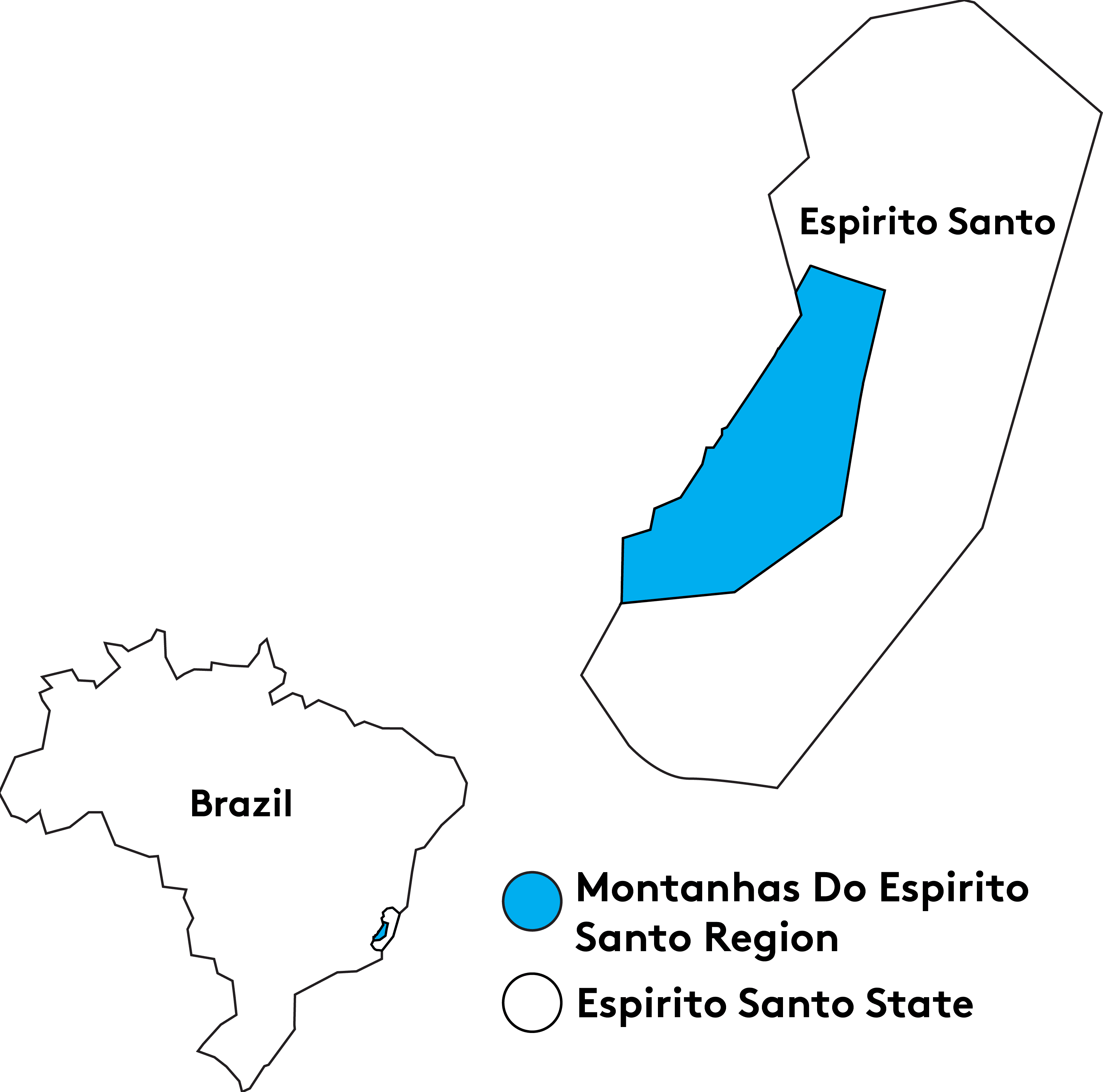The coffee producer José Antonio Pasti is 60 years old and comes from an Italian family. He was born and raised in the region of Taquarussu, in the Vargem Alta municipality, an area that has historical relevance to the production of specialty coffee.
José Antonio’s father, Ermelino Pasti, inherited a small property in the 1960s and was the one who started producing coffee. José Antonio grew up alongside his father, learning from him how to manage production. He worked on his neighbor’s farm but also always worked together with his father to take care of their land.
When, in 1981, his father’s land was divided between José and his brothers, they remained together as family continued to work to increase production. Over time, they expanded the area planted with coffee. They planted new varieties, those with disease resistance and higher production yields.
In 2005, José Antonio and his siblings were motivated to produce differentiated coffees, discovering the quality of their own coffee through regional competitions. José Antonio maintains a positive outlook. 6 of the farm’s 9 hectares are planted with coffee between 990 and 1080 meters above sea level.



